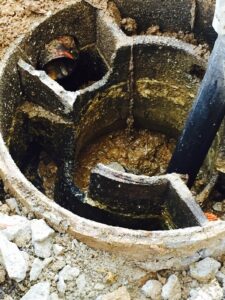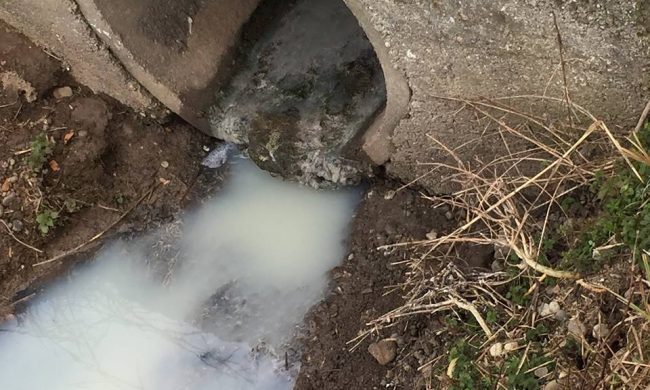
“Siamo in un Borgo, caro – we live in a borgo, darling.”
Annarita’s expression contains a mixture of compassion and amusement. Annarita is almost eighty and one of the few people who have lived in our borgo all their lives. Actually, the only one. She stands as straight as a soldier, her long, beautifully white hair always wound into a neat bun.
Her orto, her vegetable garden, is her pride and joy. It produces far more than she could ever eat, so she has mastered the art of pickling and preserving. Delicious zucchine sott’olio (courgettes in oil with garlic and herbs), cetrioli in agrodolce, cipolle rosse all’aceto balsamico – basically, sour pickles and pickled onions, but completely different. She makes endless jars of passata from her tomatoes. And even then, there are always leftovers, so she turns up at our door with her basket full of goodies.
Today, it’s fresh lettuce, parsley, and beef tomatoes—which you can’t use for passata, apparently. She’ll bring the passata in winter. The first time this happened, I made the mistake of asking how much she wanted for it. She looked at me, equal parts offended and confused, before replying,
“Niente, pensa te. Nothing, of course, don’t be ridiculous.”
Luckily, she forgave me, probably because I’m an Ollandese and can’t be expected to know any better. The subject has never come up again. She always stays for a coffee, even if she finds our espresso machine far too modern. She herself only ever makes coffee in a stovetop Mokka, a percolator.
“But your coffee is very nice too, of course,” she reassures me.
It took a while, but she now asks us for help instead of waiting for her son to finally drive down from Bologna. Loose shelves, stuck windows—that sort of thing. We also keep an eye on delivery drivers, because Annarita would rather risk her life hauling a heavy box than ask one of us to lift a finger. It’s not a quid pro quo situation; it’s just how things work in a borgo. You help each other out.
The thing that makes Annarita happiest, though, is a plate of babi pangang. Italian food is, of course, spectacular, but when you live here long enough, you do start to crave something different. Indonesian cooking is a bit of a family tradition for me, hence the babi pangang, sweet and sour meat. Italians love it. The enormous pan I made for the village festival was empty in no time. I have no idea how many times Annarita went back for more, but she was certainly a major contributor to its disappearance. So whenever I cook Indonesian food, I always bring her a plate. She devours the Ajam Paniki and Semoer Djawa with just as much enthusiasm.
Today, Annarita stirs her empty coffee cup as we watch our neighbour engaged in what can only be described as a passionate argument. His name is Giorgio, and he works as a buyer for a large retail chain. During the summer months, his wife lives here full-time with their son and daughter. She teaches at a scuola materna, a preschool, so she has a long summer break. Their house is a seconda casa, a holiday home.
Giorgio is talking to a contractor — it says so on the side of his van. He does renovations, installations, roofs, basements, and fognatura – drainage, or in less delicate terms, sewage.
The discussion is taking place at full volume, making it easy for us to follow from ten metres away.
The problem becomes clear quickly: Giorgio’s fossa biologica – his cesspit – is leaking.
Now, this may be a good moment to delve into the workings of the fossa biologica (which, let’s be honest, sounds much more elegant than cesspit). Especially for all you city dwellers. All the wastewater from the house flows into the fossa. The solid matter (I’ll leave that to your imagination) sinks to the bottom, while the “liquid” part exits at the top. The solids are supposed to be removed once a year by a specialist company. Ideally. Usually, the fossa drains into a pipe with small holes about a meter underground, allowing the liquid to disperse. Now, if the fossa starts leaking from the bottom, well … let’s just say that’s not good.
In our borgo, most houses have gardens, but they’re often above the house itself, which makes draining into your own land impossible. Over the centuries, various creative solutions have been devised, none of which were ever documented. As a result, most homeowners have no idea where their “water” ends up.
Giorgio throws his arms up in despair. His “Ma per favore, Oh please!” echoes between the buildings like a desperate plea. The contractor remains unmoved.
This fossa is beyond repair.
The bearer of bad news takes a step back and glances around. Annarita raises her hand, and he cheerfully waves back. She knows him, of course — she knows everyone in the surrounding area.
He walks over to his van, shakes Giorgio’s hand, and holds onto it as he strings the words together no owner of an old house in a borgo ever wants to hear:
Hera, geologo, geometra, pratica, comune.
Hera is the company responsible for water management. It was once a state-owned utility, now privatized. Getting Hera to take action —even when legally required to— is totalmente impossibile, absolutely impossible. The geologo, the geologist, must determine where the wastewater might be drained. Then the geometra, the surveyor, must draw up plans for the new system and submit them as a pratica (a formal application) to the comune, the local authority, for approval.
This process takes anywhere from six months to … well, let’s just say those dots are there for a reason.
I turn to Annarita and tell her how awful I feel for Giorgio. His summer is officially ruined. Without a functioning fognatura, he can’t even use his bathroom.
“Siamo in un Borgo, caro. He just needs to call Simone.”
She’s obviously far less concerned than I am.
(To be continued.)
